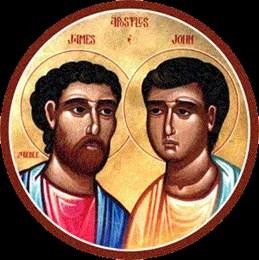
1 minute read
the Tidings
Calling Lightning or Mercy?
In Luke 9:54-56, Jesus and his disciples were walking through the region of Samaria. Judeans and Samaritans were related through Israel, but differed in ethnicity, culture, theology, and religious practices. There was a great deal of hostility between the two peoples.
Advertisement

Senior Pastor
In the story, a particular village in Samaria prohibited Jesus from entering the town. Two of his disciples, James and John, inquired if Jesus wanted them to call down fire out of heaven and consume the Samaritans. Evidently, they remembered a story of how the prophet Elijah, while he was in Samaria, had called down fire on Ahaziah’s soldiers. (2 Kings 1:1-18)
It was at this point that Jesus rebuked them. Whereas James and John thought that they should do what Elijah had done, Jesus reminded them he had come to save, not to harm. It is no wonder that Jesus called James and John “Sons of Thunder.” (Mark 3:17)
Does a religious cause justify force, or does insult entitle retaliatory injury? As far as Jesus was concerned, there was no room in his ministry for that type of attitude or response.
Ironically, and some may add “poetically”, the disciple John would one day return to Samaria. He would not desire to call down fire, but rather he would call down the Holy Spirit on the Samaritans who had believed. (Acts 8:14-17). If John had had his way years before, those very Samaritans would have died before they had an opportunity to believe.
The Spirit helps us understand how God’s mercy triumphs over judgment, (James 2:13) and that patience wins over far more persons than force. James and John did not have the power or authority to call down fire on the Samaritans. The rebuke of Jesus served to save their own souls from the dangers of anger and the desire for revenge, and to remind them that salvation in Christ is always the main goal. The presence of mercy can lead to blessing in Christ, for us and others. May our generation heed the same lessons.










